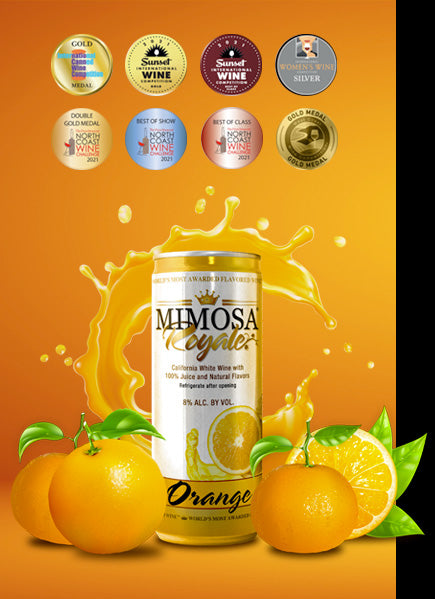Welcome to the captivating world of wine! This delightful elixir has been cherished for centuries, bringing joy and flavor to countless palates. But have you ever wondered how this magical drink is made?
The Vineyard: Where the Magic Begins

The journey of wine starts in the vineyard, where the grapevines bask in the sun, soaking up nature's goodness. Skilled viticulturists tend to the vines, carefully pruning and nurturing them throughout the year. The choice of grape varieties, soil composition, and climate play a crucial role in shaping the flavors that will eventually grace our glasses.
Harvest Season: The Exciting Grape Harvest

As the seasons change and the grapes reach their optimal ripeness, the vineyard comes alive with activity during the harvest season. Harvesting is a meticulous process, as each grape cluster is hand-picked to ensure only the finest fruit is selected. The vineyard buzzes with excitement as workers diligently gather the grapes, their vibrant colors reflecting the promise of a bountiful vintage.
Crushing and Pressing: Extracting the Essence

Once the grapes are harvested, it's time to unleash their juicy potential. The first step is crushing, where the grapes are gently broken open, releasing their sweet nectar. In traditional winemaking, this process is often done by foot stomping, a romantic and age-old method. Modern wineries utilize advanced machinery to crush the grapes efficiently.
After crushing, the next phase is pressing. Here, the grape juice is separated from the skins, seeds, and stems. The method of pressing varies depending on the desired style of wine. For white wine, the juice is extracted gently to preserve its delicate flavors, while for red wine, the skins are left in contact with the juice to extract color and tannins.
Fermentation: The Yeasty Transformation

Fermentation is where the magic truly happens. The extracted grape juice, now known as "must," undergoes a mesmerizing transformation through the power of yeast. Yeast consumes the sugars in the must and converts them into alcohol, carbon dioxide, and a range of complex aromatic compounds.
During fermentation, winemakers carefully monitor temperature and oxygen levels to control the process and achieve the desired flavors. This stage can last from a few days to several weeks, depending on the wine style and the winemaker's artistic vision.
Aging: Unlocking the Hidden Flavors

After fermentation, the young wine enters a phase of maturation known as aging. This period allows the flavors to develop, mellow, and harmonize, resulting in a more complex and refined wine. Aging can take place in various vessels, such as oak barrels, stainless steel tanks, or even concrete eggs. Each vessel imparts its unique characteristics, adding depth and nuance to the final product.
The duration of aging varies depending on the wine type and style. Some wines are meant to be enjoyed young and vibrant, while others benefit from extended aging, gracefully evolving over time.
Clarification and Filtration: Polishing the Elixir

To achieve clarity and brilliance, winemakers employ various techniques to clarify the wine. Filtration, fining, and racking are commonly used methods to remove any remaining solids or impurities. This ensures the wine's visual appeal and enhances its sensory experience.
Bottling: Capturing the Essence

The moment has come to capture the essence of the wine in a bottle. The wine is carefully transferred from the aging vessel into bottles, where it will continue to evolve and mature, albeit at a slower pace. Wineries often use automated bottling lines, ensuring precision and efficiency in this crucial step. The bottles are sealed with corks or alternative closures, ready to embark on their journey to wine lovers' tables around the world.
Frequently Asked Questions (FAQs)
- How long does it take to make wine?
The winemaking process can vary in duration, depending on several factors. From the grape harvest to the final bottled product, it typically takes several months to a few years. Factors such as the desired wine style, aging potential, and winemaker's approach all influence the timeline.
- What are the main grape varieties used in winemaking?
There is a vast array of grape varieties used in winemaking, each contributing its unique character to the final product. Some well-known varieties include Chardonnay, Cabernet Sauvignon, Merlot, Pinot Noir, and Sauvignon Blanc. However, countless other grape varieties exist, each with its own distinct flavors and characteristics.
- Is winemaking a complex process?
Yes, winemaking is a complex and intricate process that requires a delicate balance of art and science. It involves careful attention to detail, from vineyard management to fermentation control and aging techniques. Skilled winemakers must navigate the interplay of various factors to create a wine that captivates the senses.
- Can you make wine at home?
Absolutely! Making wine at home can be a rewarding and enjoyable experience. With the right equipment, knowledge, and a dash of passion, aspiring winemakers can craft their own creations. It's important to research and follow proper procedures to ensure the best possible results.
- Does wine quality improve with age?
While not all wines benefit from aging, certain styles of wine can indeed improve over time. The aging process allows flavors to evolve, tannins to soften, and complexities to develop. However, not all wines are meant to be aged, and it's essential to follow the recommendations of winemakers and experts for optimal enjoyment.
Cheers to the Enchanting World of Wine
As we raise our glasses to the end of this delightful journey, we toast to the magical art of winemaking. From the vineyard to the bottle, the process is filled with passion, expertise, and a touch of alchemy. The next time you savor a glass of wine, remember the dedication and craftsmanship that went into every sip. So why wait? Indulge in the captivating flavors of Mimosa Royale's canned-flavored wines and experience the enchantment for yourself! Dive deep into our website to explore the range of refreshing flavors. Contact us today at 1.855.9MIMOSA or through email at sales@drinkmimosa!





